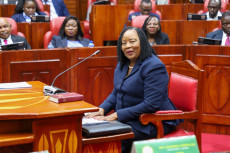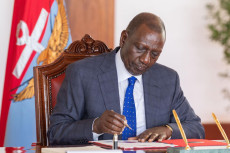- One common misunderstanding is the belief that Islam and Christianity are incompatible and cannot coexist.
Education Will Clear Misconceptions Between Islam, Christianity
15 Mar, 2024 11:06 AM

In our diverse world, fostering understanding and respect for different religions is crucial.
Islam and Christianity, as two major religions, have sometimes been subject to
misunderstandings and misconceptions. However, it is essential to recognize that they share common values and teachings.
By addressing these misunderstandings, we can build bridges of harmony and foster better relationships.
One common misunderstanding is the belief that Islam and Christianity are incompatible and cannot coexist.
While they may have theological differences, both religions emphasize the importance of faith, prayer, and leading a virtuous life. Love, kindness, and fairness towards others are shared values in both religions.
We can engage in more productive and empathetic conversations by highlighting these commonalities, leading to greater understanding.
Another prevalent misconception is the association of Islam with violence. It is vital to distinguish the actions of a few individuals from the broader beliefs of an entire religion. Islam, like Christianity, promotes peace and condemns violence.
Acts of terrorism or extremism should not be seen as representative of the true teachings of Islam or its followers. We can rectify these misunderstandings and work towards a more peaceful world by fostering open dialogue and mutual learning.
Misunderstandings also exist regarding the roles of women in Islam and Christianity. Both religions value the dignity and equality of women, although interpretations and cultural practices may differ.
It is crucial to recognize that societal norms and cultural influences sometimes overshadow the actual teachings of these faiths. By advocating for gender equality and empowering women within their respective faith communities, we can challenge these misconceptions and foster a more inclusive society.
Education and dialogue are essential for dispelling misunderstandings. Events that bring together individuals from different faith backgrounds, such as conferences and workshops, provide learning and mutual understanding opportunities.
Meaningful conversations enable us to break down barriers and deepen our comprehension of one another.
The media also plays a significant role in shaping public perceptions of religions. The press must portray Islam and Christianity accurately and fairly. By sharing stories that highlight cooperation, interfaith dialogue, and shared values, the media can help correct stereotypes and promote respect among different religious communities.
Recognizing these religions' shared values and teachings, dispelling misconceptions, and engaging in meaningful dialogue and education are crucial steps towards building bridges of harmony and promoting a more inclusive and peaceful society.
Leave a comment
No comments yet. Be the first to share your thoughts!
Don't Miss Out
Hot Stories
Latest Stories

21 hrs ago
Parliament Vets Ida Odinga for UNEP Post
✋
Ad
✋
Ad








